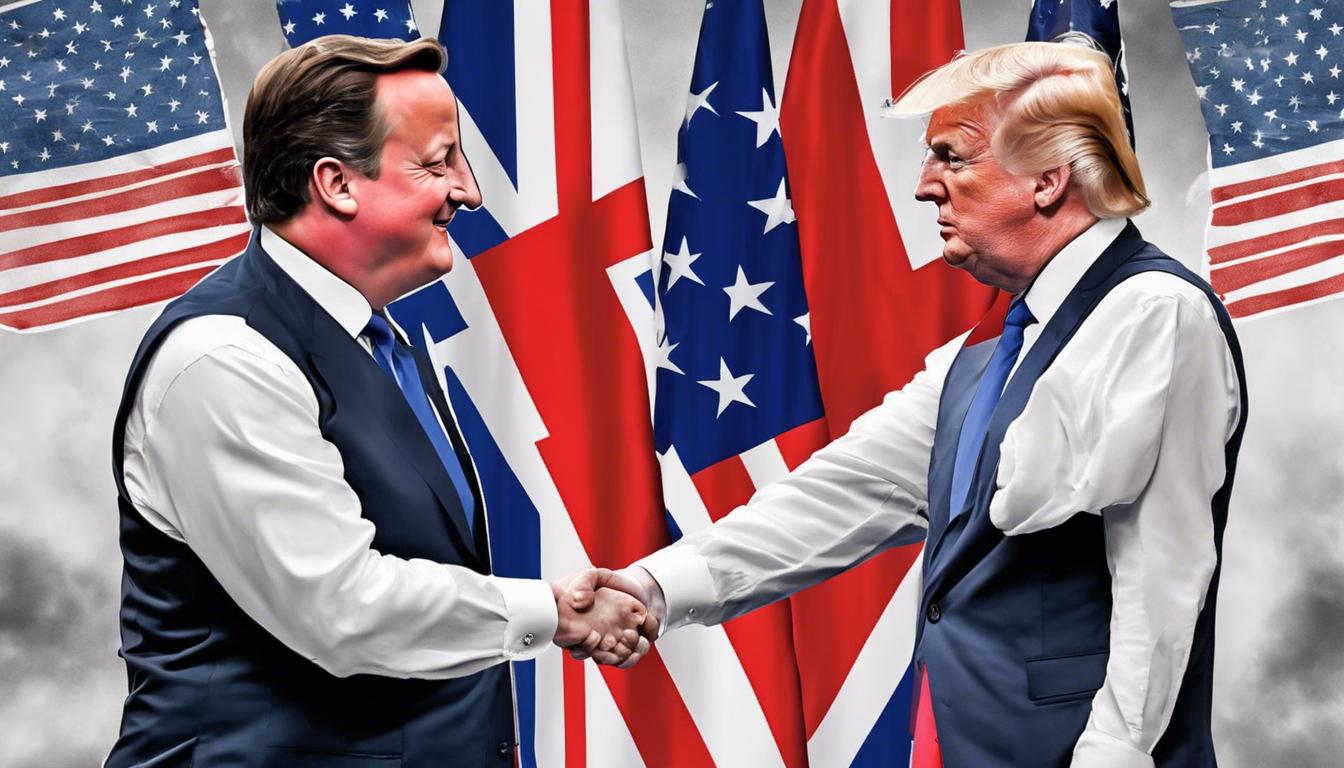In a notable move, former UK Prime Minister and current Foreign Secretary David Cameron has met with ex-US President Donald Trump to discuss military aid for Ukraine and the situation in Gaza, aiming to bolster international support and ensure global stability.
Former UK Prime Minister and current Foreign Secretary David Cameron recently embarked on a significant visit to the United States, aimed at bolstering support for Ukraine amidst its ongoing conflict and addressing the delicate matter of Israel’s involvement in Gaza. During his trip, Cameron held a notable meeting with ex-US President Donald Trump in Florida, marking a rare interaction between a senior British minister and Trump since he left office in 2021. This meeting was part of Cameron’s broader initiative to engage with key political figures in the US to advocate for crucial military aid for Ukraine and to foster discussion on Middle East affairs, particularly the recent tensions in Gaza.
Cameron’s agenda includes supporting Ukraine both defensively and possibly offensively by 2025, with a pointed emphasis on a proposed extra $60 billion aid package that awaits Congress’s approval. His discussions in the US also intend to shed light on the tragic deaths of several British aid workers in Gaza, calling for thorough investigations and measures to ensure the safety of humanitarian workers in conflict zones.
Despite potential divisions within the UK government regarding Cameron’s stance on Middle East policy and his past controversies related to business dealings, he remains focused on making a significant impact during his tenure as Foreign Secretary. His diplomatic efforts are underscored by meetings with high-ranking officials like US Secretary of State Antony Blinken, through which Cameron aims to secure backing for Ukraine and address the recent incidents in Gaza.
The British Foreign Office has characterized Cameron’s meeting with Trump as part of routine international engagements. However, this trip underscores the UK’s determination to navigate complex international issues, including advocating for Ukraine’s defense against Russian aggression and addressing the volatile situation in Gaza. Cameron’s visit reflects ongoing efforts to influence US policy and reinforce the importance of global stability and democratic values.













